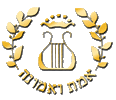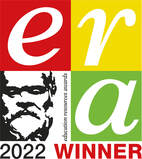School Offer for Student Support
Mission Statement
|
We aim to provide every possible opportunity for every child to develop their full potential. Children with Special Educational Needs must be valued as individuals and should be encouraged to integrate with their peers, both socially and academically. They should have access to the school curriculum. At all times, consideration will be given to maintaining and enhancing the self-esteem of children with Special Educational Needs.
Teachers are encouraged to respond to pupil’s diverse learning needs. Teachers take account of SEN requirements and make provision, where necessary and where possible, to support individuals or groups of children and thus enable them to participate effectively in curriculum and assessment activities. Such children may need additional or different help from that given to other children of the same age. We support children in a manner that acknowledges their entitlement to share the same learning experiences that their peers enjoy. Wherever possible, we do not withdraw children from the classroom situation. There are times, though, when to maximise learning, we ask the children to work in small groups, or in a one-to-one situation outside the classroom |
SEND Support from Local Authorities
Advice, information and services to children and young people with Special Educational Needs or Disabilities (SEND) and their families. |
Quality teaching and a graduated approach are used to identify a pupil who needs SEN support.
Four types of action are taken to put effective support in place(ASSESS, PLAN, DO and REVIEW). These actions form part of a cycle through which earlier decisions and actions are revisited, refined and revised with the growing understanding of the pupils’ needs and of what supports the pupil in making good progress and securing good outcomes.
SEN (SPECIAL EDUCATIONAL NEEDS) – WHOLE SCHOOL PROVISION MAP
The information below outlines the practice and range of support offered across the King David High School in each area of need. Support is always tailored to the needs in an individual class or for an individual pupil and the offering in each class will reflects this and may change accordingly.
UNIVERSAL APPROACH
Listed below are the strategies which may be employed in our school to support children within the areas of need as categorised in the SEND Code of Practice:
SEN SUPPORT
If your child requires support in addition to the Universal Approach they may receive the support listed below:
COGNITION AND LEARNING
Universal Approach
High expectations of children and appropriate challenge for all
Clear learning objectives and differentiated outcomes, clear instructions
Clear feedback and next steps in their learning – children involved in the process and given time to respond
Behaviour for Learning at the heart of lessons/school ethos
Access to ICT to help reduce barriers to learning
Use of Writing frames
Variety of teaching styles and approaches using both open and closed tasks matched to the needs of individuals
Multisensory learning approach (visual, auditory and kinaesthetic learning)
Planning emphasises what children will learn based on an assessment of what the child already knows, understands and can do, ‘Assessment for Learning’ principles in place
Personalised and differentiated teaching, including questioning
Learning presented in small chunks. Mini plenaries throughout session to ensure pupils making good progress.
Differentiated curriculum planning, activities, delivery and outcome
TA in class support
Structured school and class routines
SEN support
Visual timetables
1:1 and /or small groups teaching supported by teacher and LSA
Word building and high frequency word recognition support delivered by Teacher and Teaching Assistants
Writing intervention—English intervention groups
Maths Catch Up Groups/intervention—Maths Club
Additional Maths Support (1:1, or small group in class delivered by teacher and teacher assistant)
In class support from TA across the curriculum identified yearly
Spelling practice groups
Additional individual reading
Interactive learning
COMMUNICATION AND INTERACTION
Universal Approach
Differentiated curriculum planning, activities, delivery and outcome e.g. simplified language
Increased visual aids / modelling etc
Structured school and class routines
SEN support
In class support
Speech and Language support; TA delivering speech therapist devised support programme if needed
Input from Autism Outreach
3 O’clock Club
Social Stories
SOCIAL, EMOTIONAL AND MENTAL HEALTH DIFFICULTIES
Universal Approach
Whole school positive behaviour policy
Iris Reward System/ certificates
7 R’s—Respectful, Responsible, Resilient, Reasonable. Resourceful, Ready and Happy to learn, Role Models—Rewards Given
Assemblies: Presentation Achievement
Wellbeing—PSHE
Wellbeing Garden Project
Safe Space
Counselling and CBT
Buddy system
Sport and PE, Physical Activity
SEN support
Social Skills group and Circle Time
Individual reward system
Home – school record (daily)
Nurture intervention
Individual counselling
Time out cards
Year 6 transition support
SENSORY AND/OR PHYSICAL NEEDS
Universal Approach
Flexible teaching arrangements
Staff aware of implications of physical impairment
SEN support
Fine and Gross Motor Skills support
Additional handwriting practice
Use of IT- alternative ways of recording work
Writing slopes available
Pencil grips available
Individual support in class during PE and lunch time
Reasonable adjustments to environment to support access
Toilet passes
Lunch passes
Four types of action are taken to put effective support in place(ASSESS, PLAN, DO and REVIEW). These actions form part of a cycle through which earlier decisions and actions are revisited, refined and revised with the growing understanding of the pupils’ needs and of what supports the pupil in making good progress and securing good outcomes.
SEN (SPECIAL EDUCATIONAL NEEDS) – WHOLE SCHOOL PROVISION MAP
The information below outlines the practice and range of support offered across the King David High School in each area of need. Support is always tailored to the needs in an individual class or for an individual pupil and the offering in each class will reflects this and may change accordingly.
UNIVERSAL APPROACH
Listed below are the strategies which may be employed in our school to support children within the areas of need as categorised in the SEND Code of Practice:
SEN SUPPORT
If your child requires support in addition to the Universal Approach they may receive the support listed below:
COGNITION AND LEARNING
Universal Approach
High expectations of children and appropriate challenge for all
Clear learning objectives and differentiated outcomes, clear instructions
Clear feedback and next steps in their learning – children involved in the process and given time to respond
Behaviour for Learning at the heart of lessons/school ethos
Access to ICT to help reduce barriers to learning
Use of Writing frames
Variety of teaching styles and approaches using both open and closed tasks matched to the needs of individuals
Multisensory learning approach (visual, auditory and kinaesthetic learning)
Planning emphasises what children will learn based on an assessment of what the child already knows, understands and can do, ‘Assessment for Learning’ principles in place
Personalised and differentiated teaching, including questioning
Learning presented in small chunks. Mini plenaries throughout session to ensure pupils making good progress.
Differentiated curriculum planning, activities, delivery and outcome
TA in class support
Structured school and class routines
SEN support
Visual timetables
1:1 and /or small groups teaching supported by teacher and LSA
Word building and high frequency word recognition support delivered by Teacher and Teaching Assistants
Writing intervention—English intervention groups
Maths Catch Up Groups/intervention—Maths Club
Additional Maths Support (1:1, or small group in class delivered by teacher and teacher assistant)
In class support from TA across the curriculum identified yearly
Spelling practice groups
Additional individual reading
Interactive learning
COMMUNICATION AND INTERACTION
Universal Approach
Differentiated curriculum planning, activities, delivery and outcome e.g. simplified language
Increased visual aids / modelling etc
Structured school and class routines
SEN support
In class support
Speech and Language support; TA delivering speech therapist devised support programme if needed
Input from Autism Outreach
3 O’clock Club
Social Stories
SOCIAL, EMOTIONAL AND MENTAL HEALTH DIFFICULTIES
Universal Approach
Whole school positive behaviour policy
Iris Reward System/ certificates
7 R’s—Respectful, Responsible, Resilient, Reasonable. Resourceful, Ready and Happy to learn, Role Models—Rewards Given
Assemblies: Presentation Achievement
Wellbeing—PSHE
Wellbeing Garden Project
Safe Space
Counselling and CBT
Buddy system
Sport and PE, Physical Activity
SEN support
Social Skills group and Circle Time
Individual reward system
Home – school record (daily)
Nurture intervention
Individual counselling
Time out cards
Year 6 transition support
SENSORY AND/OR PHYSICAL NEEDS
Universal Approach
Flexible teaching arrangements
Staff aware of implications of physical impairment
SEN support
Fine and Gross Motor Skills support
Additional handwriting practice
Use of IT- alternative ways of recording work
Writing slopes available
Pencil grips available
Individual support in class during PE and lunch time
Reasonable adjustments to environment to support access
Toilet passes
Lunch passes
Staff List
|
Mrs. H. Morrissey, SENCO
Mrs.I.Benjamin Mrs.V.Benjamin Mrs.S.Black Mrs.L.Brown Mrs.L.Burns Mrs.A.Cline Mrs.T.Cohen |
Miss.G.Davis Miss I Grebeneva Mrs.B.Goodall Mrs.L.Goodall Mrs M Gordon (Supply) Mrs.M.Harris Mrs.N.Kay |
Mrs.J.Levinson Mrs M Myers Mrs M Rosenberg Mrs.M.Werner |



